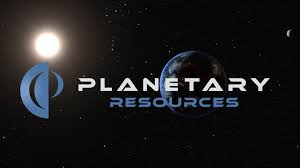
Breaking News
Importing Poverty into America: Devolving Our Nation into Stupid
 Grand Theft World Podcast 273 | Goys 'R U.S. with Guest Rob Dew
Grand Theft World Podcast 273 | Goys 'R U.S. with Guest Rob Dew
 Anchorage was the Receipt: Europe is Paying the Price… and Knows it.
Anchorage was the Receipt: Europe is Paying the Price… and Knows it.
 The Slow Epstein Earthquake: The Rupture Between the People and the Elites
The Slow Epstein Earthquake: The Rupture Between the People and the Elites
Top Tech News
 Drone-launching underwater drone hitches a ride on ship and sub hulls
Drone-launching underwater drone hitches a ride on ship and sub hulls
 Humanoid Robots Get "Brains" As Dual-Use Fears Mount
Humanoid Robots Get "Brains" As Dual-Use Fears Mount
 SpaceX Authorized to Increase High Speed Internet Download Speeds 5X Through 2026
SpaceX Authorized to Increase High Speed Internet Download Speeds 5X Through 2026
 Space AI is the Key to the Technological Singularity
Space AI is the Key to the Technological Singularity
 Velocitor X-1 eVTOL could be beating the traffic in just a year
Velocitor X-1 eVTOL could be beating the traffic in just a year
 Starlink smasher? China claims world's best high-powered microwave weapon
Starlink smasher? China claims world's best high-powered microwave weapon
 Wood scraps turn 'useless' desert sand into concrete
Wood scraps turn 'useless' desert sand into concrete
 Let's Do a Detailed Review of Zorin -- Is This Good for Ex-Windows Users?
Let's Do a Detailed Review of Zorin -- Is This Good for Ex-Windows Users?
 The World's First Sodium-Ion Battery EV Is A Winter Range Monster
The World's First Sodium-Ion Battery EV Is A Winter Range Monster
 China's CATL 5C Battery Breakthrough will Make Most Combustion Engine Vehicles OBSOLETE
China's CATL 5C Battery Breakthrough will Make Most Combustion Engine Vehicles OBSOLETE
The Daily: Consensys Acquires Planetary Resources, New Zealand Backs Crypto R&D

Consensys, the software company established by Ethereum co-founder Joseph Lubin, has acquired struggling space startup Planetary Resources. The New York-based company said it will now operate its "space initiatives" out of Planetary Resources' former facility in Redmond, Washington. The two sides did not share the financial details of the asset-purchase transaction, but it is safe to assume Consensys didn't pay a lot.
When Planetary Resources was launched in 2012, the company promised to usher in an age of private entrepreneurship in the solar system. It said that it planned to expand humanity's access to metals and minerals worth trillions of dollars and received the backing of many notable tech figures, such as Google's Larry Page and Eric Schmidt. However, by the start of this year, the company had failed to secure much-needed additional funding, leading to its decision to downsize its workforce and indefinitely delay its first asteroid-prospecting mission. Now it will be up to Lubin to prove he can become the Elon Musk of the cryptocurrency world by reviving Planetary Resources.
"Bringing deep space capabilities into the Consensys ecosystem reflects our belief in the potential for Ethereum to help humanity craft new societal rule systems through automated trust and guaranteed execution," Lubin said. "And it reflects our belief in democratizing and decentralizing space endeavors to unite our species and unlock untapped human potential. We look forward to sharing our plans and how to join us on this journey in the months ahead."
Callaghan Innovation Supports Vimba

Auckland-based cryptocurrency investment platform Mycryptosaver has announced it is changing its name to Vimba. The rebranding decision coincides with the announcement that the New Zealand government's innovation arm, Callaghan Innovation, has agreed to back Vimba with R&D funding. The startup, which was originally founded as Mybitcoinsaver back in 2014, now claims to have 5,616 clients.
"This is a truly significant investment from Callaghan Innovation and a real show of faith in the future of this very exciting asset class," Vimba CEO Sam Blackmore said. "The money will go towards new key features for our expanding service. We will use it to build secure multi-signature crypto wallets for our users and we're also looking into expanding the range of cryptocurrencies available to them — beyond bitcoin and ethereum."
After the investment was announced earlier this week, controversy erupted over reports that the government had spent taxpayers' money on a Bitcoin company. However, Vimba soon issued a clarification stating that Callaghan Innovation had only approved a grant for 40 percent of the estimated cost of one of its projects, which was valued at roughly 315,000 New Zealand dollars in total.



